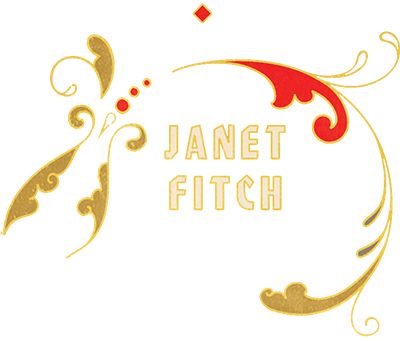Four Literary Questions
Four literary questions
This question was posed for me by a reader on my Goodreads page. For me, the best questions are the ones that make me think more deeply about the issues involved. This was a good one:
"What makes a great story/book? There are so many writers out there, but only a few get any acclaim, and some of the best posthumously. It is a herd mentality that snowballs into popularity?"
The questioner is actually asking four separate questions here.
1. What makes a great story?
2. What makes a great book?
3. Why do only a few books get acclaim?
4. Is it a herd mentality that snowballs a book into popularity.
I answered them in order--but Number 2 is the one that interests me most.
1. A great story is one which satisfies the question it raises in the beginning. It can be a very subtle question, about love, say, or loyalty, or an obvious one, 'who killed Colonel Mustard and why,' and satisfies it in a way that was continually surprising, that's both suspenseful--even oddly so--and pays off along the way in terms of its central question, as well as at the end. Story is setup and payoff. A novel is a series of payoffs. But there is alignment, it doesn't jump the rails.
2. A great book is far more than a great story. A great book, and I mean greatness--a great book deepens our understanding of the human condition. A great book moves us, it shapes us. On the technical level, a great book will have us torn between the urge to read on--to satisfy suspense, what we call 'profluence' ie. what's going to happen?????--and the urge to stay and reread that sentence because its so bloody beautiful, moment to moment. The exquisite tension between beautiful writing and compelling story is the greatest of all pleasures. And then to be continually thinking more and more deeply about life and our own humanity, add that in, and you have Greatness.
3. Why do only a few books get acclaim? Because out of the 400,000 or so books published in English this year, or the 100 million books in existence today, there are only going to be a certain number who meet the criterion of #2--greatness. Of these, so much depends upon a sensitive connection between publisher and public. That's why real book critics are so terribly important and the loss of stand-alone book review sections in newspapers--and the loss of newspapers--across the country so imperils the whole literary project. Acclaim--real acclaim, recognition of greatness and the ability of great readers to find those books and acclaim them--is a very dicey prospect, luck plays all too big a part in it. There are a lot of writers but not a lot of greatness in any generation. It's locating the greatness and then allowing that to reach the readers that's always the issue. Why posthumous books often get more recognition is that the often horrible event of a writer's death calls attention to their work, and if greatness is involved, there's the huge regret that there will be no more of their work, and that somehow we readers might have been more attentive, might have somehow saved that writer.
4. The question of popularity and the question of acclaim are two very very different ones. Hard to accept, maybe, in this time of 'ranking likes' instead of ranking greatness. We all like a bag of Doritos from time to time, but we all know the difference between chemically treated snack food and a fine and nourishing meal. Popularity means that various aspects of reading matter, a story, a self-help or whatever, meet people's needs in a satisfying way. They might not be literary needs--see #2--and often aren't. They might be the need to escape some heavy-duty personal problems for a while. They might be the need to tag along on an adventure. They might be a way to vicariously live a dream life. If they perform their function successfully, people talk about it, and then their friends hear about it.
It's not so much 'herd mentality' as it is the contagious excitement of something people have found entertaining, useful, pleasant, interesting or meaningful in some way--and it can be excitement of a literary nature too. Fine writers can be exceedingly popular--Tolstoy was very popular in his time, as was Dickens and Twain. In our time, we have John Irving, Amy Tan, Isabel Allende, George Saunders, John Le Carre, Joyce Carol Oates, Richard Russo, Jonathan Lethem, TC Boyle, Jane Smiley, Toni Morrison. Naturally, that's the sweet spot. To strive for greatness, to tell a great story, to have some acclaim and some popularity--what more can writer hope for?
